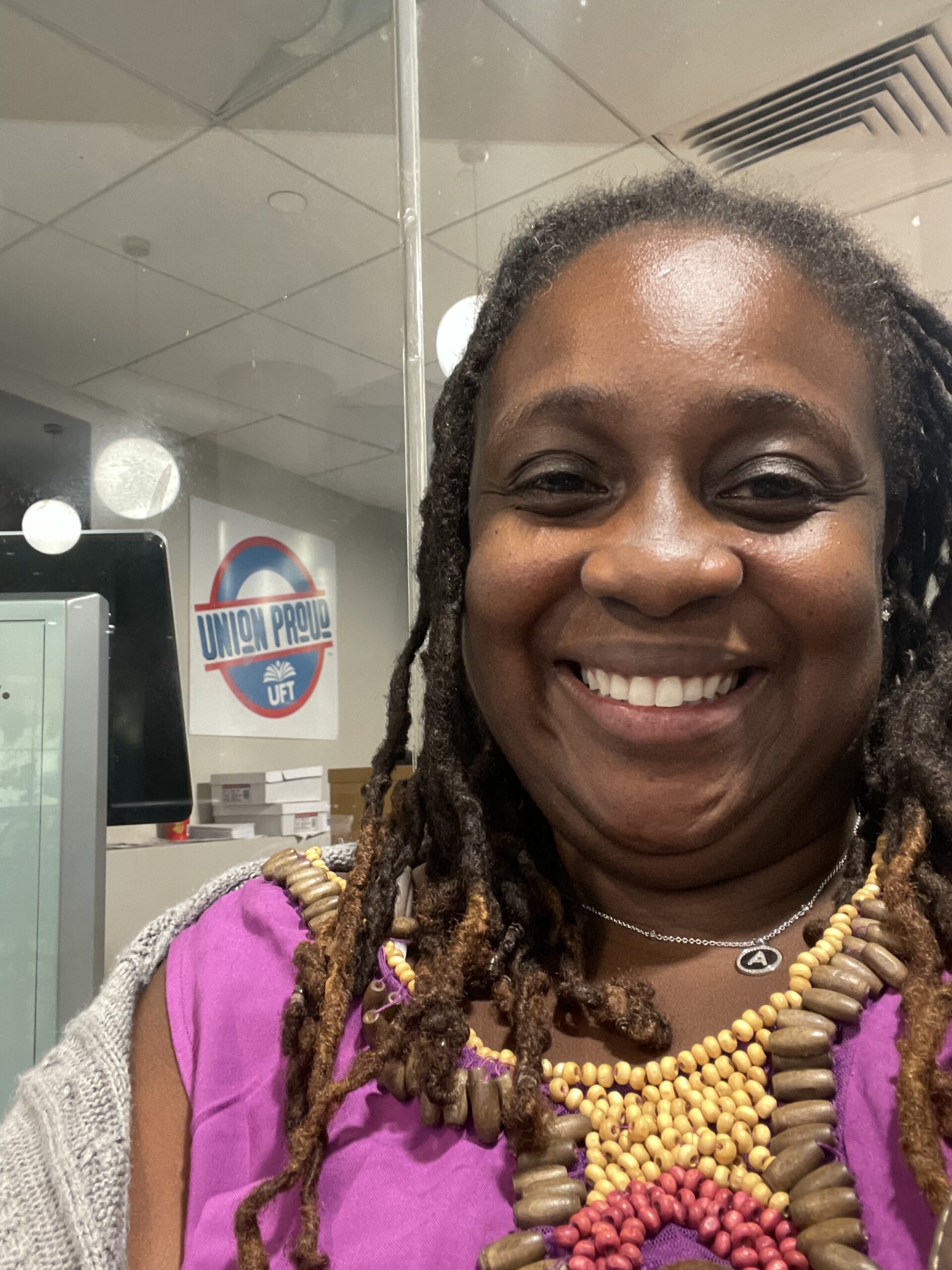November 25, 2024
My Roses and Thorns With NYC Reads
April Rose • Elementary School Teacher
As an NYC elementary school teacher, I’m witnessing firsthand the potential of NYC Reads — a program that promises to equip every student with the reading skills they need to thrive. I believe wholeheartedly that literacy is the gateway to all academic success, and I’m committed to making sure NYC Reads fulfills this promise.
Over the years, I’ve worked with various instructional materials, each with its own strengths and flaws. NYC Reads is no exception, but I’m confident that by elevating teachers’ voices like mine and my colleagues, we can make this initiative positively impact our students. Here’s what my journey with NYC Reads has been so far, and I hope my story inspires and empowers other teachers stepping into this change!
IMPLEMENTING NYC READS IN YOUR CLASSROOM? SHARE YOUR THOUGHTS HERE.
NYC READS BRIGHT SPOTS
A major bright spot for me is the wealth of materials in HMH’s Into Reading curriculum, especially its strong emphasis on vocabulary. Building strong vocabulary skills is crucial for our students, especially when tackling informational texts. For instance, one of my students, who initially struggled with vocabulary, has shown remarkable improvement using the curriculum’s tools. In just one year, the screening and reading data we collected showed promising results, with our students performing well—this is a testament to the curriculum’s effectiveness in that regard.
Another bright spot is my constant opportunities for learning and growth. When the UFT Teacher Center held in-person sessions over the summer, it was a game changer. Teachers appreciated being in a physical space where they could ask questions, share insights, and engage with printed materials directly. As someone who often embraces online learning, I still found that being in the room with colleagues who had similar questions and concerns was extremely valuable. It gave us a chance to really dive into the content and build our understanding together.
These sessions are also supplemented by the support we’re receiving from coaches, such as Teaching Matters, our incredibly knowledgeable UFT Teacher Center coach, and district-wide coaches who offer monthly pop-up clinics open to all educators in our district. These sessions are especially helpful for teachers who may not have direct coaching support in their buildings.
Even from teacher to teacher, I’ve learned so much from my colleagues as we collaborate to problem-solve, especially during our common planning meetings, which facilitate consistent collaboration.
NYC READS CHALLENGES
One significant issue I’ve encountered is the tendency for some lessons to cram multiple objectives into a single learning target. For example, one piece we read in class recently had three different skills bundled together. While the science of reading often requires blending multiple skills, it can be difficult for teachers to focus on a clear target when there’s so much to cover. It may be more beneficial to instead spend more time developing each skill before moving on, ensuring we explicitly teach each concept before advancing. It’s a balancing act—we must dig deeper into each skill while still meeting the standard expectations.
Another challenge is the absence of novel studies. In our previous curriculum, ReadyGEN, students had the opportunity to engage with full novels alongside shorter stories, creating a balanced and enriching reading experience. HMH’s approach, on the other hand, leans heavily on anthology-style materials. While this has its merits, many of us miss the depth and continuity that novel studies provided. In response, our team has worked to revamp our curriculum and pacing, introducing priority standards and rearranging the modules to fit our needs. While it’s a positive step, it’s still an area that needs more attention.
WHAT’S NEXT?
To be clear, I recognize that my experience may not be the same as every educator. New York City is large and diverse, and I received a head start because I began using HMH’s Into Reading before NYC Reads was officially rolled out. This head start gave me more time to collaborate with peers, engage in training, and work through the curriculum’s challenges.
Still, it serves as a reminder of the importance of patience, continuous learning, and educator empowerment during such significant transitions. NYC Reads has the potential to make a meaningful impact, but only if educators are given the time, grace, support, and opportunities for constant learning that they need for this, or any curriculum for that matter, to be effective.
I encourage my fellow educators to share their stories, insights, and feedback as we continue to shape and refine NYC Reads together. If we collaborate and advocate, we have the opportunity to make a lasting difference in the lives of our students.
Currently Reading
My Roses and Thorns With NYC Reads
